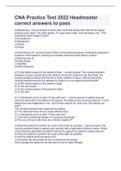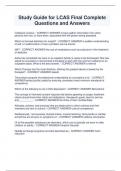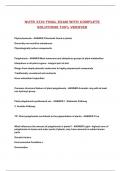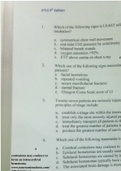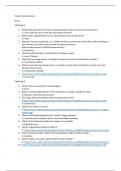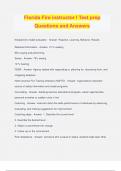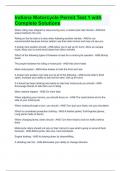Paper discussion
Papers week 2
PAPER 1 = PERFORMANCE IMPLICATIONS OF DELAYED COMPETITIVE RESPONSES: EVIDENCE FROM
THE U.S. RETAIL INDUSTRY
Topic & expected contribution = The study focuses on the timing and consequences of competitive
responses and suggests that response delay has a curvilinear relationship with responder
performance, and a linear relationship with first mover performance.
- Intriguing =
- Innovative = The study also makes a methodological contribution by being one of the few
that directly links the effects of response timing to stock market performance.
- Impactful = There is not really a gap addressed, more of a new view on an already existing
and studied before relationship.
- Important = Yes, it proposes that managers do not need to take actions to quickly.
Framing = Porter (1985) stresses two reasons why a quick response is important to profits:
1. Quick responses prevent the first mover from building barriers such as buyer switching costs
that may be difficult for late responders to overcome.
2. Quick responses are called for because they signal incumbent commitment to defend market
positions.
This reasoning suggests a negative linear relationship between response delay and responder
performance
Lilien and Yoon (1990) found that the success of new products was lower for first and second
entrants, higher for third and fourth movers and again lower for fifth and sixth movers and all
subsequent entrants.
while empirical evidence suggesting that a fast follower strategy may be effective is mixed,
there is empirical support for delayed responses.
, - This may be because they allow firms to collect more information about a pioneer’s action.
- Delays may allow for resolution of market/technological uncertainties and development of
more effective responses.
Theory development =
1) Responder performance and response delay are related in an inverted U-shaped manner:
lower performance will result for fast and late responders, and higher performance for firms
with intermediate response delays.
2) First mover performance and response delay are related in a linear manner: as response
delays are longer (shorter), performance decreases are smaller (greater).
Methods =
Results = hypothesis are validated
Discussion & conclusion = The study contributes to the first mover literature as it predicts that the
performance effects of response timing for the responder and the first mover are different and not
the mirror image of another. Traditional first mover theory focuses too much on the advantages of
fast response and disadvantages of responding slowly. It overlooks the risks of responding too fast
and the potential of the nonlinear relationship.
PAPER 2 = THE CLOCK IS TICKING! EXECUTIVE TEMPORAL DEPTH, INDUSTRY VELOCITY, AND
COMPETITIVE AGGRESSIVENESS
Topic & expected contribution = The paper examines the interplay between executive temporal
depth (= time horizons that executives consider when contemplating past and future events) and
industry velocity (= the rate at which new opportunities emerge and disappear in an industry) shapes
competitive aggressiveness and firm performance.
- Intriguing =
- Innovative = Prior studies only considered future time horizons. This research demonstrates
the role of both past and future time horizons in shaping competitive behaviors.
- Impactful = Generalized least squares models were used (GLS), which correct for and provide
consistent estimates in the presence of groupwise heteroskedasticity, cross-group
correlation and within-group auto-correlation.
- Important = As it appears to have an influence on firm performance it is important for
managers to consider the impact of PTD and FTD.
Framing = past temporal depth (PTD) and future temporal depth (FTD)
Macro temporal forces: Industry level - temporal features of the environment that serve as time
givers and determine the degree to which the competitive advantage enjoyed by incumbent firms is
temporary or sustainable.
Micro temporal forces: firm level - are reflected in the actions taken by individual firms in creating
and pursuing new opportunities.
Theory development =
1) Industry velocity will moderate the relationship between executive PTD and competitive
aggressiveness such that this relationship will be positive in low-velocity industries, but
negative in high-velocity industries.

